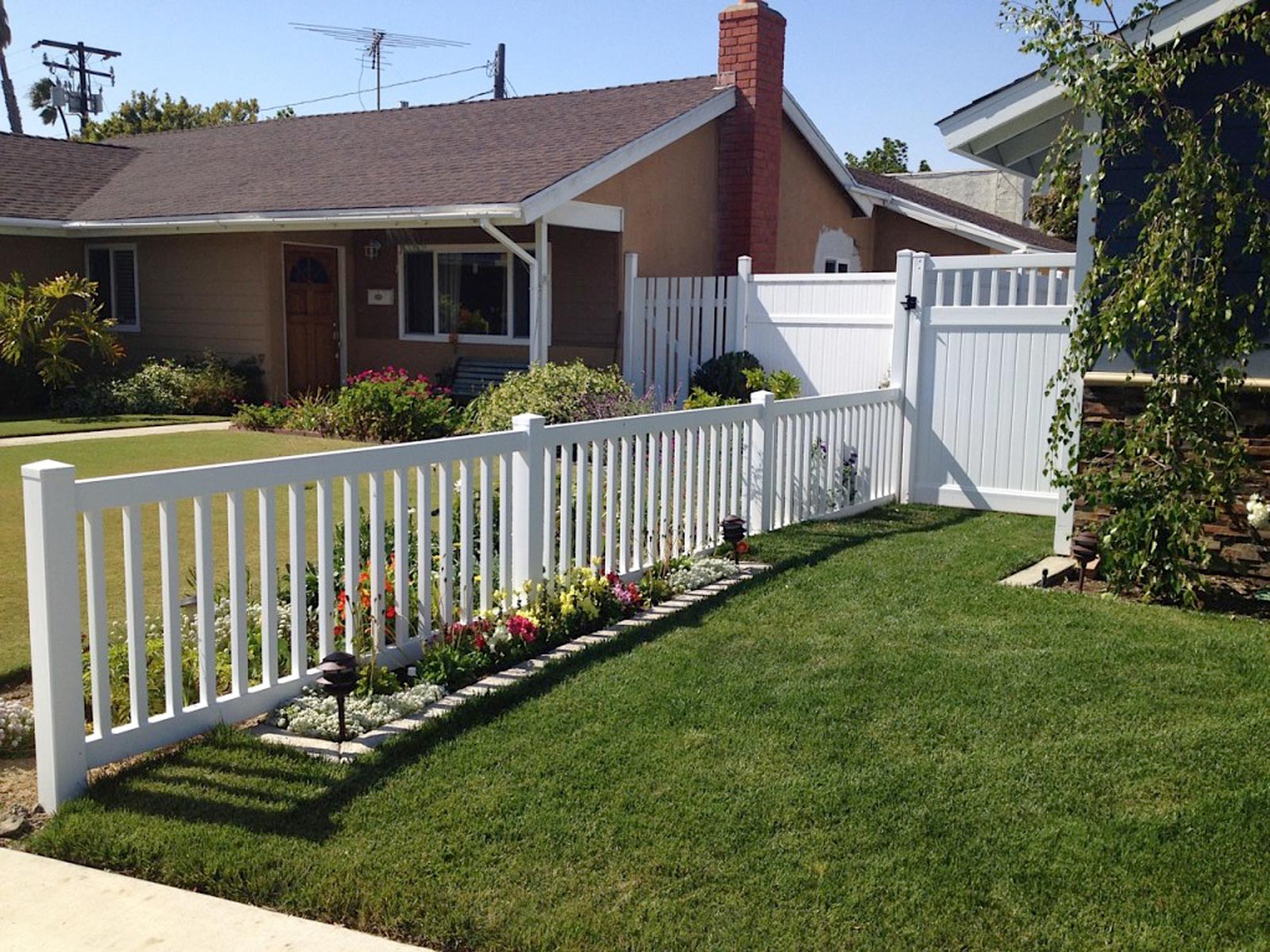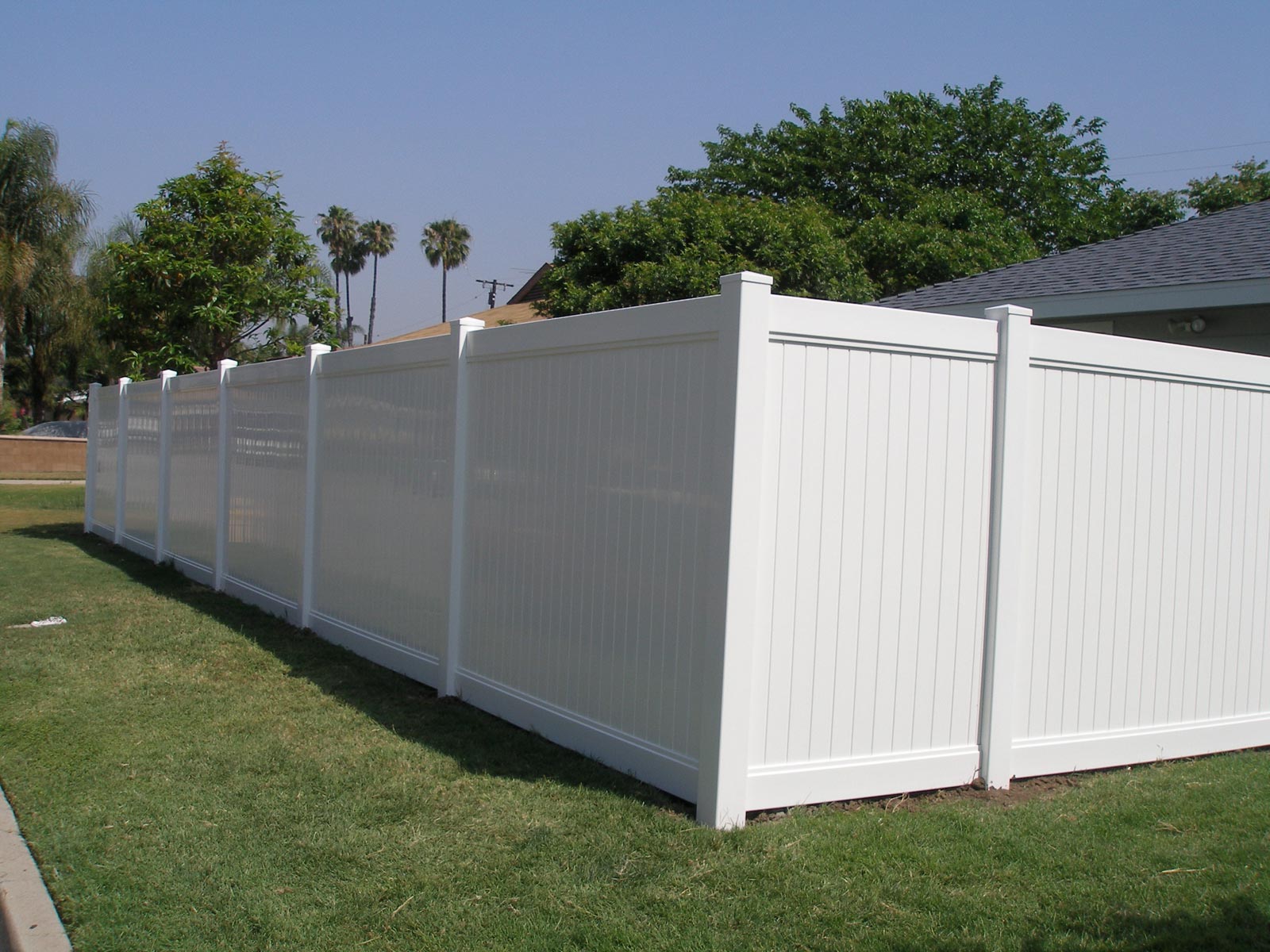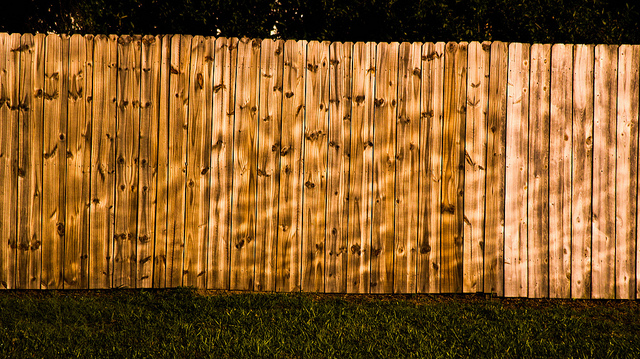Vinyl vs. Wood Fence: Pros & Cons

When it comes to fences, there is no “one size fits all” option. There are many different types of fences, such as wood fences, chain-link fences, vinyl fences, aluminum fences, and wrought iron fences.
In this article, we’ll be looking at vinyl fences vs. wood fences, to determine which one is best for you. We’ll compare price, quality, lifespan, appearance, upkeep, and maintenance to help you decide on the right fence for your home.
Vinyl Fences
According to CertainTeed, vinyl fences are a type of plastic fence made of PVC (polyvinyl chloride). They are a great alternative to wood fences and have become much more common in recent years.
Pros:
Vinyl fences are much more sturdy than traditional wood fences and are a lot easier to maintain. Vinyl fences can last through all types of weather and harsh environments, making it a prime choice for durability. Not to mention, these fences can last upwards of 20+ years with little to no maintenance. Cleaning a vinyl fence is also easy; all you need is water and a hose. Vinyl fences usually also come with a longer warranty, since they are guaranteed to last for years.
Cons:
A major issue with vinyl fences is the high cost. It is much more expensive compared to a wood fence. Larger projects can and will cost much more upfront, which may be a deal-breaker for those looking to purchase a large fence. Repairs on a vinyl fence are also difficult and expensive as well. Another issue is the fact that many people prefer the natural and classic look of a wood fence. Many argue that vinyl fences just do not have the same appeal as a wood fence. There is also a limited number of colors to choose from.

Wood Fences
Wood fences are a traditional and classic choice of fencing that has been around for many years. There are many different types of wood fences, and can also come in many color options.
Pros:
Wood fences are extremely affordable (compared to vinyl fences) and are incredibly easy to install. They are easy to personalize and come in a wide variety of colors. Wood fences also provide the natural and classic look that many homeowners tend to prefer. It is also easier to make repairs on a wood fence since all you need is a hammer, nails, and more wood.
Cons:
Wood fences may seem more affordable upfront, but this may cost more in the long run due to their high maintenance requirements. Wood fences require high maintenance since they are very susceptible to rotting, warping, termites, etc. This is guaranteed to be pricier to fix and maintain in the long run. Because of the constant maintenance, wood fences usually only have a lifespan of 10-20 years. This can be a deal-breaker for many homeowners

So in the battle between vinyl vs. wood fences, which is better? In this case, vinyl fences may be the better option. Although the initial cost of purchasing is high, they have a better return on investment, since they can stand for many years with little to no maintenance. The convenience and quality of a vinyl fence are enough to convince homeowners to avoid wood fences.
However, as a homeowner, it is up to you to decide what kind of fence you prefer. If you prefer a natural look to your property and can afford the cost of maintenance, wood fences may be the perfect option for you. Take a look at your property, consider all the options, and make the best decision for you.


